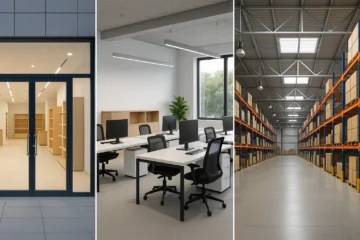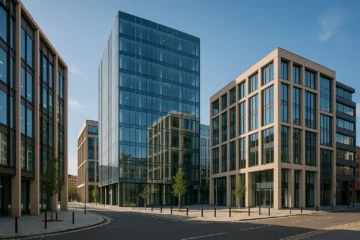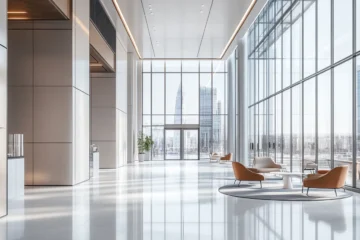The landscape of commercial real estate has undergone a profound shift in recent years. Spurred by the rise of remote work and the growing demand for more agile office setups, businesses—particularly startups and SMEs—are reimagining how they use space. Traditional long-term leases are giving way to flexible workspace solutions, marking a turning point where property is no longer seen as a static asset, but as a strategic enabler of adaptability, resilience, and growth.
The Evolving Role of Commercial Leases
The once-standard 10-year lease, long considered a hallmark of business security, is quickly falling out of favor. In its place, companies are embracing a model rooted in adaptability. The pandemic laid bare the limitations of inflexible leases, leaving many firms locked into costly, underused offices. Others, navigating economic turbulence, lacked the bandwidth to renegotiate terms or relocate effectively.
This climate has accelerated demand for workspaces that adjust to shifting needs. Across the UK—from creative agencies in Bristol to tech firms in Manchester—businesses are choosing setups that let them grow or scale back without penalty, aligning real estate with operational tempo.
Scaling Smart: A Real-World Pivot
Pulse Creative, a digital agency in Birmingham, offers a telling example. Saddled with a conventional lease, the team found themselves paying for empty meeting rooms during lockdown. The solution? A move to a coworking space with flexible terms and shared resources. The change cut costs by 40% and sparked new partnerships through shared community interaction—highlighting how smart workspace choices can directly impact a company’s financial and creative health.
For many, this kind of flexibility is proving far more valuable than unused square footage.
Coworking: A Growing Ecosystem
No longer limited to freelancers and solo entrepreneurs, coworking spaces have evolved into fully serviced hubs for modern business. These environments provide everything from meeting rooms and high-speed internet to event space and professional support—all without the overhead of managing a facility.
More importantly, they foster organic collaboration. It’s not uncommon for a design firm to land a new client over coffee in the shared lounge, or for a SaaS startup to test its product with fellow tenants. In rigid office environments, these connections are rare—but in coworking communities, they’re part of the culture.
Location Still Holds Power
While hybrid models have loosened the grip of the daily commute, location remains a critical factor. Being based in a vibrant, well-connected area still enhances a company’s credibility, appeal to talent, and accessibility to clients. Flexible leasing options now make it feasible for smaller firms to plant roots in areas that once seemed out of reach.
This is especially true for teams looking to attract top-tier professionals. A workspace near transit hubs and lifestyle amenities can significantly boost satisfaction in both hybrid and full-time setups.
Lease Terms: Rethinking the Fine Print
Flexibility isn’t only about physical space—it’s embedded in the lease terms themselves. Modern businesses are pushing for contracts that reflect changing realities: shorter durations, early exit options, subletting rights, and expansion clauses. In response, landlords are offering tailored agreements that prioritize long-term relationships over rigid commitments.
For small and growing companies, these changes open up possibilities that were once out of reach. Negotiating with awareness of tenant rights and creative clauses can make the difference between merely staying afloat and scaling with confidence.
Real Stories, Real Shifts
Anna, who runs an interior design firm in Leeds, experienced this first-hand. During lockdown, her lease became unmanageable. “We were paying for a space we couldn’t even use,” she said. The turning point came when she found a flexible workspace with lower rent, shorter commitments, and a community she could collaborate with. “It didn’t just save the business—it brought our energy back.”
Her experience mirrors a broader sentiment: workspace flexibility isn’t just cost-saving—it’s energizing.
Looking Ahead: Built for Change
As market dynamics continue to evolve, flexibility is emerging not as a perk, but a necessity. Businesses that lean into adaptable leasing strategies are better equipped to ride out uncertainty, attract talent, and operate with agility.
The future of commercial property will reward versatility. Cookie-cutter leases are giving way to tailored solutions that match the pace and personality of the businesses they house. From coworking floors to modular layouts, real estate is being reshaped by the very companies it serves.
For those launching new ventures or reevaluating growth plans, flexible workspaces offer more than convenience—they represent a strategic investment in resilience, creativity, and long-term success.


